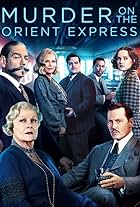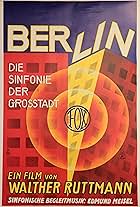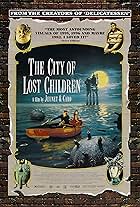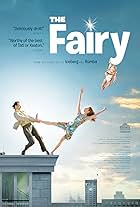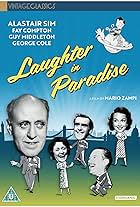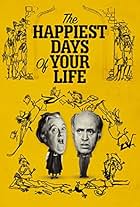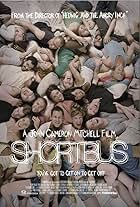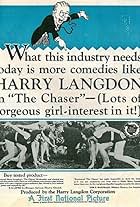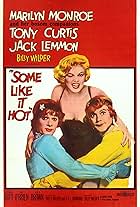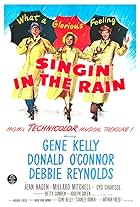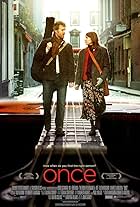fcullen
Joined Jan 2000
Welcome to the new profile
We're still working on updating some profile features. To see the badges, ratings breakdowns, and polls for this profile, please go to the previous version.
Ratings35
fcullen's rating
Reviews22
fcullen's rating
Yes, one can quibble. Yes, Branagh's Poirot moustache was prominent enough to qualify for separate billing, and only once, upon his waking do we see it encased in its own individual overnight casing.
Qualifying as a more serious 'goof; is that the multi passenger-car Orient Express was reported to us, the audience, to be filled to capacity; yet there are only a dozen ticket-holders in evidence. Granted they occupy first-class compartments, and the rest of the coach cars may well be filled withe invisible hoi polloi segregated from everyone rich, famous or had a motive to murder, and forbidden to enter the club or dining cars. It seems the screenwriter was determined (thank heavens) to speed along the journey by ignoring each inconsistency as if it were a third-class passenger trying to enter the clubcar or an avalanche threatening to impede the pace of his plotting.
On my plus side are the performances, evero one of which equalled or bettered their 1974 incarnation. Of course, no one EVER betters john Gielgud in any role, but I preferred Branagh to Finney, Although AF is a favorite, i found
d his Poirot a bit too stodgy and forced. Michelle Pfeiffer reminded me she knows an d uses her craft, as did Johnny Depp, who masterfully and consistently chose an intonation and vocal rhythm unlike I've heard before from him.
Does anyone know the background of Sergei Polunin? Is he related to that clown genius Slava Polunin?
Also on the plus side for me was Kenneth Branagh's direction. The 1974 version moved like cold molasses, and some of the acting seemed like star turns rather than ensenble work. I appreciated Branagh's comparatively brisk direction that momentarily whisked us though and past an infelicity in the script. The denouement chugged and then halted along with the train. Perhaps it was blocking: the actors arrayed in a row, waiting for Poirot as if they were at an employment agency agency awaiting a chcck and, hopefully, their next gig. Yet I do not regret for the two hours spent in their company.
Other reviewers have explained the plot, so I'll simply tell you that I find this film funny and one of my top-rated movie comedies of all time (Blazing Saddles, Some Like it Hot, Olsen & Johnson's Hellzapoppin, Radio Parade of 1935, most of the film comedies starring Monty Python, Alastair Sim, Margaret Rutherford, Alec Guinness and almost all the classics by Chaplin, Keaton, Langdon, Lloyd, Laurel and Hardy, Marx Brothers, W. C. Fields, Mae West and Mel Brooks. During what seems in retrospect a scant decade following WWII, English language movies along with some stage plays, literature, network radio and early live television appealed to an American public better educated and verbally literate than generations before and after. In comedy of that fleeting era, there was frequently an absurdist streak and occasionally some commentary and deconstruction of the very medium in which it appeared. It's in the Bag is a good example of wit, absurdist comedy and deconstruction. An independent production built around the twin poles of a satiric Russian novel and acerbic comedian Fred Allen, it attracted co-stars willing to work for less than their usual salaries: Jack Benny, Binnie Barnes, Don Ameche, Robert Benchley, Rudy Vallee, Victor Moore, William Bendix, John Carradine, Sidney Toler and Jerry Colonna. The result is a series of scenes encountered by Fred Allen as he follows the trail of his missing chairs, one of which conceals a fortune. The script (written by Fred Allen, Morrie Ryskind, Lewis Foster, Jay Dratler & Alma Reville (Hitchcock's swife) is tight, clever, stuffed with incident and characters (most of them spoofing their on-screen personas). Directer Richard Wallace is efficient and compatible wirth the material and performers, and cinematographer Russell Metty was one of filmdom's finest and a favorite of Orson Welles, Stanley Kubrick, Don Siegel and Stweven Spielberg.
This Leon Errol short, The Jitters, recreates in part one of his most famous eccentric comedy dancer routines from the Ziegfeld Follies 20 years after he first performed it. Many folks don't know that Leon Errol was one (if not THE) most important stage comedian of the 1910s. Not only did he create a racial breakthrough when he chose to partner in comedy skits with African American comedian Bert Williams in four Ziegfeld Follies but Errol was one of Ziegfeld's frequent directors of the Follies. Errol went on to star in and direct a number of very successful Broadway revues and stage musicals before making silent films (mostly lost). Determined to maintain a freelance control of his film career, Leon likely realized that he was considerably older than most comedians that studios were willing to invest and promote them into 1930s and 1940s stars like Joe E. Brown, W. C. Fields and Bob Hope. Although Leon's birth date is given as 1881, it could well be 1876--otherwise he would have been 14 or 15 while studying in medical school in Australia! The Jitters is one of his best and funniest shorts: 2 one-reel comedies melded into a two-reeler that displays Leon's talents to perfection.
